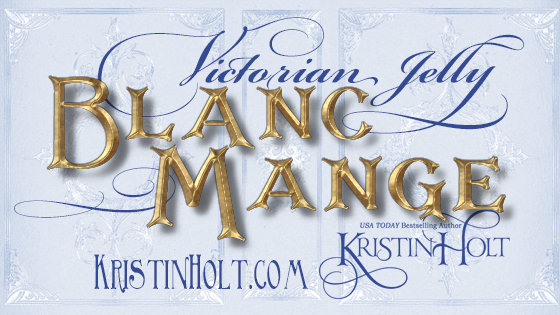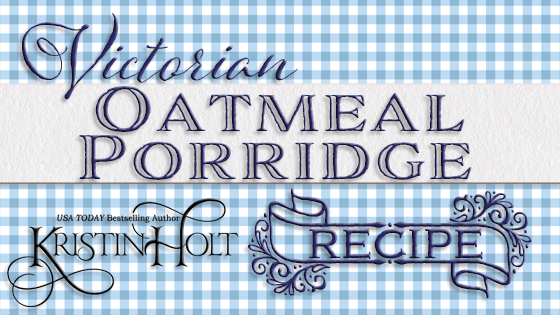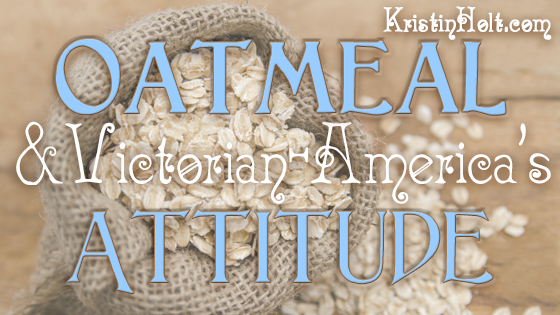
by Kristin Holt | Apr 23, 2021 | Articles
Blanc Mange (blancmange) was a favorite throughout the nineteenth century, in the UK and in the States. Victorians thickened this favorite gelled dessert with a wide variety of articles, old and new. Vintage recipes gathered from era cook books and newspapers, along with newspaper advertisements, show the wide range of blanc manges in Victorian dining.

by Kristin Holt | May 24, 2019 | Articles
We’ve seen recipes for oatmeal cookies (with and without raisins), oatmeal in Victorian bath water (to soften and whiten skin), and more. Who knew that Victorian Oatmeal Porridge Recipes could require significantly more instructions (and a dedicated saucepan!) than any other vintage recipe?

by Kristin Holt | May 15, 2019 | Articles
Some Victorians spoke of oatmeal as if it were a mainstay of their diets. Others claimed oats were fit only for animal fodder or for use in baths to soften skin… but food? Ugh. No. Why were beliefs so polarized? Why did Victorian-Americans have an aversion to oats?

by Kristin Holt | Apr 30, 2019 | Articles
Today, April 30, is Oatmeal Cookie Day!
Who knew?! “Everyone” online claims Fannie Merritt Farmer’s oatmeal cookie recipe (1896) to be the FIRST published (FALSE!)… but I found fourteen Victorian-American recipes in vintage cook books and newspapers beginning in 1883. How did history (mistakenly) favor Fannie?

by Kristin Holt | Feb 23, 2019 | Articles
Today, February 23, is National Banana Bread Day. While banana bread (as we now know it) became a staple among home bakers in the 1930s, banana bread had its start in the late Victorian era where “banana flour” came to the United States from the tropics. Vintage newspaper advertisements show the beginnings of banana bread available in bakeries and homemakers’ awareness of quality nutrition to be found in the imported fruit and “flour.” With or without nuts, banana bread is a hallmark of American quick breads… and our nineteenth century ancestors, complete with baking powder and a wealth of cake-baking knowledge, were prepared for the post-Great Depression’s urge to “use it up.”













